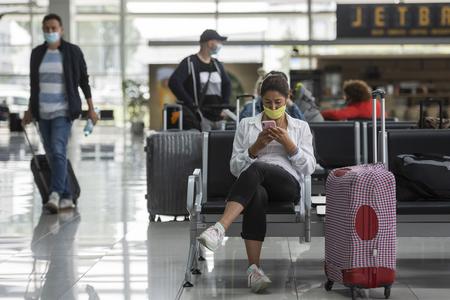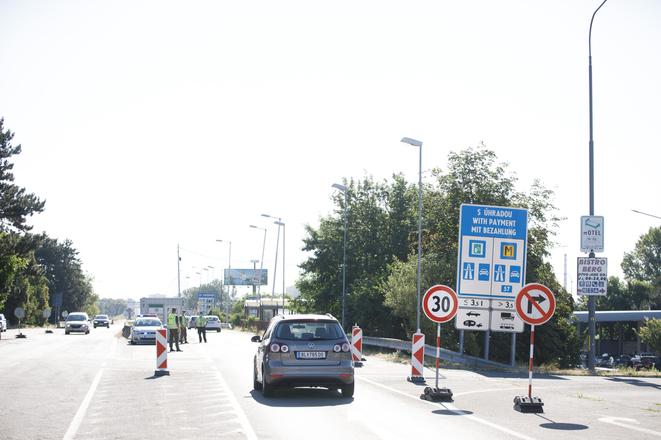Starting on Friday, October 15, the required quarantine period will be shortened. New rules will also be implemented for registration at the border and documents shown to prove one’s vaccination status.
Registration and self-isolation
Our paywall policy
The Slovak Spectator has decided to make all the articles on the special measures, statistics and basic information about the coronavirus available to everyone. If you appreciate our work and would like to support good journalism, please buy our subscription. We believe this is an issue where accurate and fact-based information is important for people to cope.
Under the new rules, every incomer older than 12 years and 2 months will have to submit an eHranica online form. They will have to show confirmation of this during border control if asked.
Those not fully vaccinated against Covid who enter Slovakia from October 15 will have to self-isolate for 10 days (down from the current 14). They can take a PCR test (reimbursed by the state) on the fifth day since arrival.
Children younger than 12 years and two months can end isolation together with their parents or other people living in the same household if they have no symptoms.
Moreover, people who enter Slovakia to receive a work permit and related documents for a driver in truck and public transport, and can show documents proving this, will be exempt from self-isolation. However, they will have to present a negative PCR test no older than 72 hours.
At the same time, people travelling directly to Slovakia by plane (including fully vaccinated incomers) will no longer be required to show a PCR test result when coming from the United Arab Emirates.

Proving the vaccination status
Under the new rules, the one-year limit set for fully vaccinated incomers has been dropped. This means that from October 15, a person will be considered fully vaccinated if:
at least 14 days have passed since receiving the second shot of a two-dose vaccine;
or at least 21 days have passed since receiving a single-shot vaccine;
or at least 14 days have passed since receiving the first vaccine shot that was administered within 180 days since recovering from Covid.
During border controls, incomers will have to show their EU Digital Covid Certificate or another national certificate issued by the non-EU country that needs to contain:
the name and surname of the holder;
the birth date;
the name of the vaccine and its producers;
the details about vaccine doses, including the total number of shots;
the date of last vaccination.
The certificate needs to contain an official stamp and be issued in English. Those who cannot show such a certificate will be treated as unvaccinated.



 Illustrative stock photo (source: SITA)
Illustrative stock photo (source: SITA)